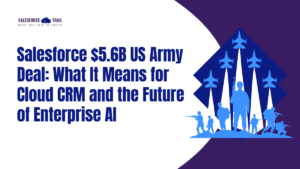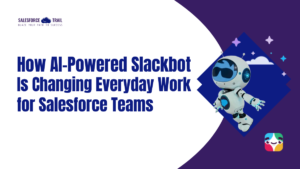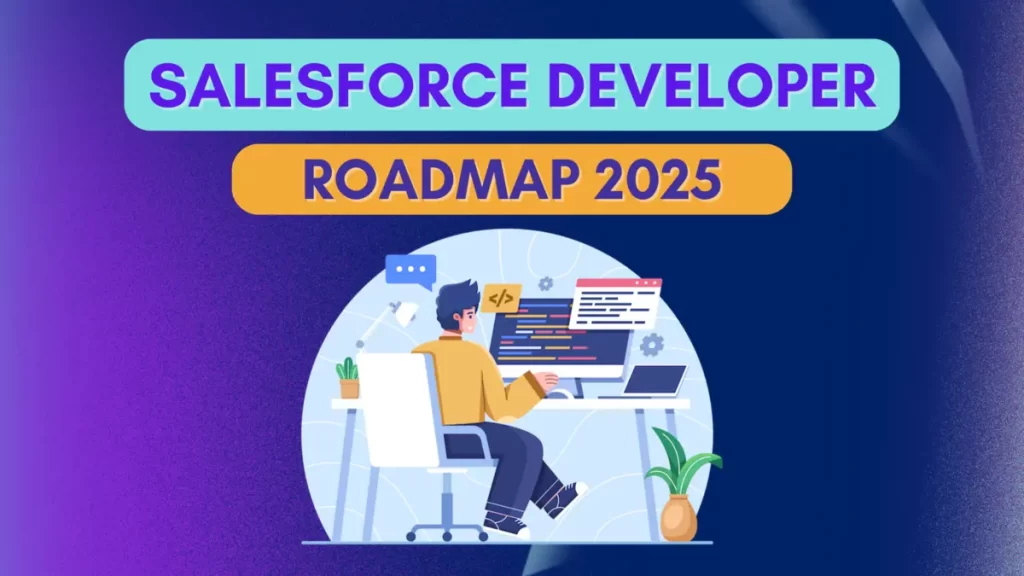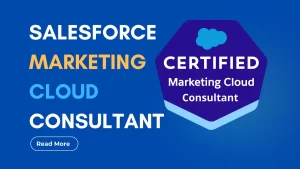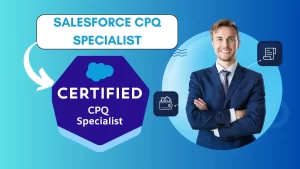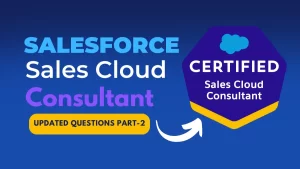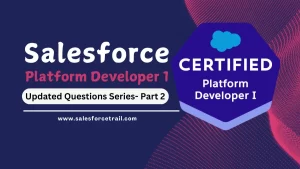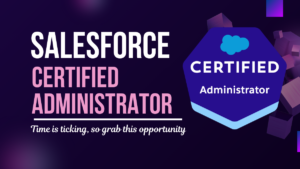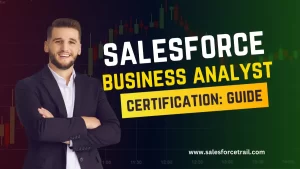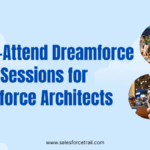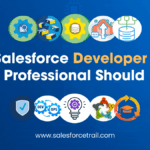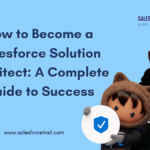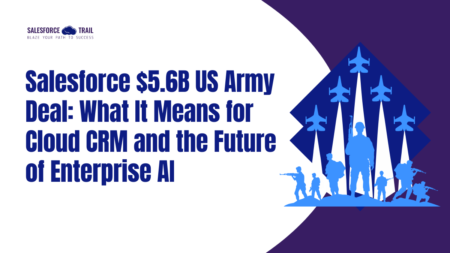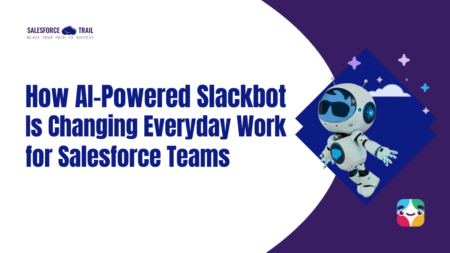In the ever-evolving tech landscape, Salesforce stands out as a powerful CRM platform, driving business success globally. For aspiring and experienced developers, the Salesforce Developer Roadmap for 2025 serves as a guiding light, helping professionals navigate the essential skills, tools, and certifications required to excel in their careers. Whether you’re a beginner or an experienced developer, this guide will provide clarity and direction.
Understanding the Salesforce Ecosystem
Salesforce isn’t just a CRM; it’s an entire ecosystem with tools, applications, and cloud services tailored for diverse industries. As a developer, it’s crucial to understand key components like:
- Salesforce Platform: The foundation for building custom apps and workflows.
- Standard and Custom Objects: Core data structures for organizing business data.
- Salesforce AppExchange: A marketplace for third-party integrations and apps.
Mastering Core Salesforce Development Skills
To thrive as a Salesforce Developer, mastering these foundational skills is non-negotiable:
- Apex Programming: Salesforce’s proprietary backend programming language.
- SOQL and SOSL: Query languages for efficient data retrieval.
- Automation Tools: Workflow Rules, Process Builder, and Salesforce Flow.
- Lightning Web Components (LWC): Modern UI development framework.
These tools ensure seamless customization and improved performance within Salesforce applications.
Integration Expertise
Salesforce doesn’t operate in isolation—it thrives on integrations. As a developer, you’ll need hands-on experience with:
- REST and SOAP APIs: For connecting with external systems.
- Salesforce Connect: For seamless data synchronization.
- Integration Patterns: Real-time, batch processing, and event-driven integrations.
Being proficient in integrations ensures a scalable and interconnected Salesforce ecosystem.
The Importance of Salesforce Certifications
Certifications not only validate your knowledge but also enhance your professional credibility. Key certifications include:
- Salesforce Certified Platform Developer I & II
- Salesforce Certified Administrator
- Salesforce Certified JavaScript Developer I
These certifications open up opportunities for higher-paying roles and greater responsibilities.
Deployment and Release Management
Efficient deployment ensures a smooth transition of changes from development to production. Key tools to master include:
- Salesforce CLI
- Metadata API
- ANT Migration Tool
- Change Sets
Adopting DevOps practices in Salesforce streamlines release cycles and minimizes deployment risks.
Testing and Debugging
Salesforce emphasizes quality code. As a developer, you must:
- Write robust unit tests.
- Follow Governor Limits to ensure efficient code execution.
- Use debugging tools to identify and fix performance issues.
A disciplined testing approach guarantees seamless user experiences.
Building a Career Path in Salesforce Development
The Salesforce career path offers numerous opportunities:
- Entry-Level Developer: $70,000 – $90,000 annually.
- Mid-Level Developer: $90,000 – $120,000 annually.
- Senior Developer/Architect: $120,000 – $160,000 annually.
With continuous learning and certifications, developers can transition into roles such as Salesforce Architect, Technical Lead, or Consultant.
Continuous Learning and Community Engagement
Salesforce has a thriving community. Engage with:
- Trailhead: Salesforce’s official learning platform.
- Community Forums and Events: Learn from experts and peers.
- Salesforce Developer Groups: Collaborate and grow with like-minded professionals.
Final Thoughts: Salesforce Developer Roadmap
Becoming a successful Salesforce Developer in 2025 requires dedication, continuous learning, and a strategic roadmap. Whether you’re starting fresh or leveling up your skills, this roadmap provides a clear direction for growth in the Salesforce ecosystem.
Invest time in mastering core skills, earning certifications, and building real-world projects to unlock exciting opportunities in the Salesforce universe.
Stay committed, stay curious, and watch your Salesforce career thrive!
Must Visit Links:
- 10 Proven Steps of Seamlessly Implementing Salesforce AgentForce
- Salesforce Agentforce in Action: Top Use Cases and Benefits for Smarter Business
- Understanding Salesforce API Limits and Best Practices
- Salesforce Introduces Agentforce 2.0 | Transforming Business Operations with AI
Resources
- [Salesforce Developer] (https://developer.salesforce.com/)
- [Salesforce Success Community] (https://success.salesforce.com/)
For more insights, trends, and news related to Salesforce, stay tuned with Salesforce Trail

Aman Sahu
A Chief Technical Architect at Bugendaitech and a Salesforce Architect with 9+ years of experience driving innovation and delivering scalable CRM solutions. As a leader and visionary, I specialize in bridging the gap between business goals and technology, focusing on Salesforce architecture, AI-powered solutions, and seamless integrations that drive efficiency and growth.
- Aman Sahu#molongui-disabled-link
- Aman Sahu#molongui-disabled-link
- Aman Sahu#molongui-disabled-link
- Aman Sahu#molongui-disabled-link

